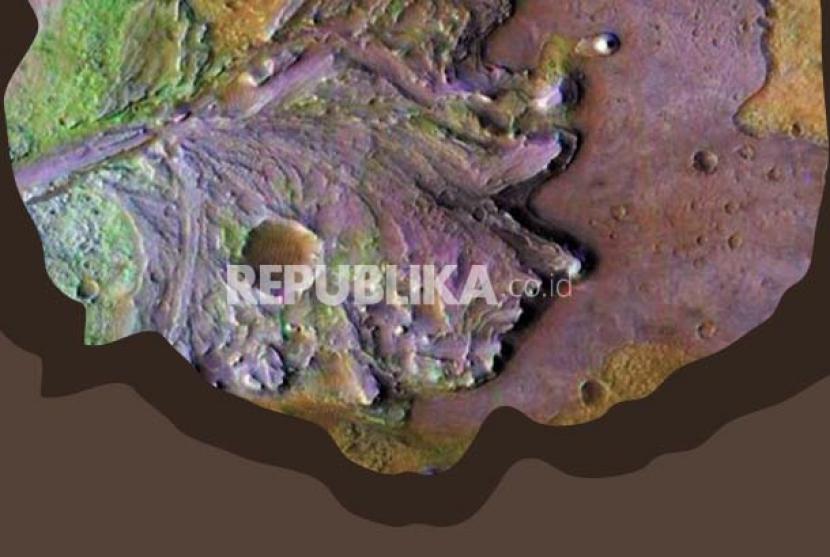The atmosphere on the planet Mars explains the presence of wind gusts and the speed of sound.
REPUBLIKA.CO.ID, JAKARTA — Scientists said on Friday (1/4/2022) the first audio recordings on Mars revealed a quiet planet with occasional gusts of wind where two different speeds of sound would have a strange delayed effect on hearing.
After NASA’s Perseverance rover landed on Mars in February last year, its two microphones began recording, allowing scientists to hear what it would be like on the Red Planet for the first time. In a study published in the journal Nature on Friday (1/4/2022), scientists provided their first analysis of five hours of sound picked up by Perseverance microphones.
The audio reveals previously unknown turbulence on Mars, said Sylvestre Maurice, lead author of the study and co-director of science for the shoebox-sized SuperCam mounted on the rover’s pylon that has the main microphone. The international team listened to the flight in the tiny Ingenuity helicopter, a similar aircraft from Perseverance, and listened to the laser rover’s zap to study its chemical composition – which makes the “clack clack” sound, Maurice told AFP.
“We have a very localized sound source, between two and five meters from its target, and we know exactly when it will fire,” he said.
The study confirms for the first time that the speed of sound is slower on Mars, traveling at 240 meters per second, compared to 340 meters per second on Earth. This has been estimated because Mars’ atmosphere is 95 percent carbon dioxide—compared to 0.04 percent on Earth—and about 100 times thinner making sound 20 decibels weaker, the study said.
But scientists were surprised when the sound the laser produced took 250 meters per second, 10 meters faster than expected.
“I panicked a little bit,” Maurice said Japan TodaySunday (3/4/2022).
“I told myself that one of the two measurements was wrong because on Earth you only have one speed of sound,” he continued.
They have found that there are two speeds of sound on the surface of Mars, one for high-pitched sounds like laser blasts, and another for lower frequencies like the roar of helicopter rotors. This means the human ear will hear high-pitched sounds a little earlier.
“On Earth, sound from an orchestra reaches you at the same speed, low or high. But imagine on Mars, if you’re a bit away from the stage, there’s going to be a huge delay,” Maurice said.
“All these factors will make it difficult for two people to have a conversation that is only five meters apart,” French research institute CNRS said in a statement.
It’s so quiet on Mars that scientists have repeatedly feared something might be wrong, CNRS said, possibly triggering memories of two previous failed attempts in 1999 and 2008 to record sound there.
“There are few natural sources of sound except wind,” the scientists said in a statement related to the study.
The microphone did pick up a lot of “screech” and “clang” sounds as the rover’s metal wheels interacted with the rock, the study said. The footage could also warn of problems with the rover, such as how the driver sensed something was wrong when their car started making strange noises.
Maurice said he felt the “scientific gamble” of bringing the microphone to Mars was a success. Thierry Fouchet of the Paris Observatory, who was also involved in the research, said that listening to turbulence, such as vertical winds known as convection clumps, would allow the Paris Observatory to refine its numerical models for predicting climate and weather.
Future missions to Venus or Saturn’s moon Titan may now also be equipped with microphones. Perseverance was far from finished eavesdropping. While its core mission lasted more than two years, it could have remained operational much longer the Curiosity rover was still embarking nine years into its planned two-year stint.
–


